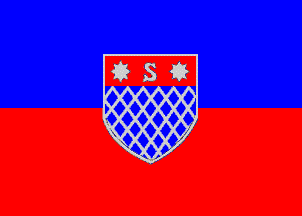|
The city of Shkodra is known for cultural achievements. The city is the birthplace of the noble figures such
as Marin Barleti, Pashko Vasa, Gjergj Fishta, Kasem Taipi, Kol Kamsi, Zef Jubani, Kol Idromeno, Martin Camaj, Lazer Shantoja, Ndre Mjeda, Filip Shiroka, and others. Albanian people inherit from this city one of the most precious literature from the
Middle Age. The book of Gjon Buzuku, "Meshari", is considered to be the first book written in Albanian language in 1555. The first Albanian newspapers and publications
printed in Albania came out of the printing press of Shkodra.
Shkodra was the seat of the Catholic archiepiscopacy and had a number of religious schools. The first laic school was opened
in Shkodra
As a result of various activities, Shkodra is also famous for its magnificent
art and architecture. In the diamond shapped city, the 90 cultural and historical monuments make
the city to be the cultural
capital of Albania.
Shkodra has always been the city of religous tolerance and cooperation. The religoion played very important role in the
progress of economy and cultural development. In 1967, the Communist Party declared Albania to be the world's first atheistic
state resulting in the senseless destruction of many religions buildings. All the religious objects were vandalised then converted
into a sport halls or wharehouses. The city sytematically was being damaged. The communist party in Shkodra built few buildings
in the city with the look of the Russian communist plans. The “Large Church”
was restored in 1991, and inagurated by Mother Teresa on her visit to Albania. Two years later, Pope John Paul II visited
the Cathedral. Shkodra was a major center
of the democratic movement of 1990 and 1991. Many demonstrations and clashes with the police occurred here, when the population
demanded an end to the brutal communist regime of Albania. Albania and Shkodra got free from the communist regime. After 1990, many people are
non-believers. Today, Shkodra has good fascilities for public transport. There are buses, mini buses, and taxis. Shkodra welcomes business people, artists, and tourists.
Whether you are a first time visitor or a resident, Shkodra is a great place to live, to work, and to explore. The important
thing is to come to Shkodra and overlook the qualities of joy. It has so much to offer, history tradition, entertainment that
one really enjoys. The charm of this fabulous city will remain in the heart of every visitor forever.
|
